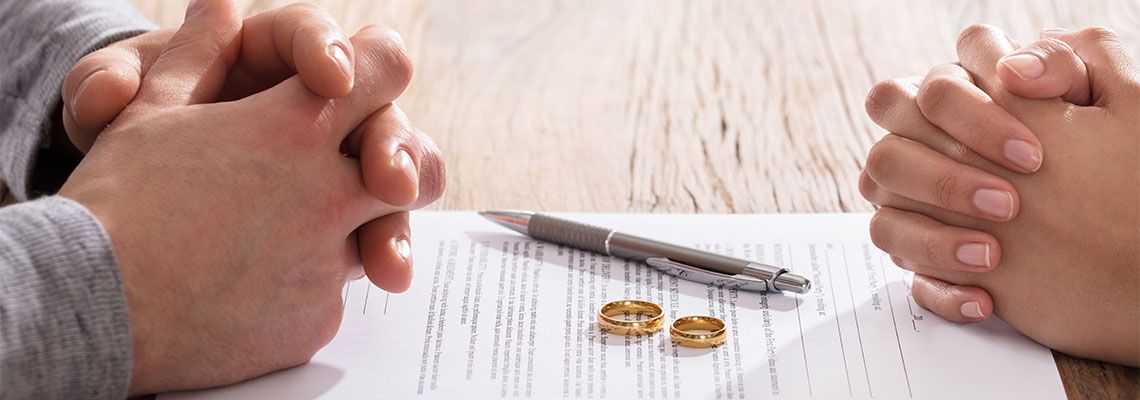
What You Need to Know About Bankruptcy and Divorce
According to a recent report, more than 3.7 million families in California don’t make enough income to meet their basic needs. As a result, many couples in California facing financial distress often turn to bankruptcy to achieve relief. However, if you're trying to end your marriage, it can be extremely stressful to deal with both bankruptcy and divorce together. If you want to know how bankruptcy and divorce affect one another, consulting with a knowledgeable California bankruptcy attorney is extremely beneficial.
With more than 30 years of combined experience, we have the diligence and expertise to advise and guide clients in bankruptcy-related matters involving divorce. Our reliable legal team can assess your conditions, inform you about the benefits of filing jointly or separately, and help you decide which one should come first, between bankruptcy and divorce. We're proud to serve clients across San Mateo, Oakland, San Francisco, Daly City, Santa Clara County, and South San Francisco, California.
Filing Separately
In the state of California, married couples are allowed to file their bankruptcy case separately or at the same time as separate entities. Here are some benefits of filing for bankruptcy individually in California:
It eliminates some of the general unsecured debts of the indebted spouse.
It allows you to protect more assets and property.
The non-filing spouse can retain their good credit score.
The separate property of the non-filing spouse is protected in bankruptcy.
Filing Jointly
Couples who are lawfully married may be eligible to file their bankruptcy case jointly. Here are some benefits of filing joint bankruptcy in California:
The couples only need to file a single bankruptcy petition. Hence, filing for bankruptcy will be more convenient and efficient.
Couples will be able to streamline the whole bankruptcy proceedings.
It eliminates the general unsecured debts of both parties.
Filing jointly can help save attorney fees and court costs.
It helps reduce the number of divorce issues both the couples and the court will need to deal with.
It is important to note that filing a joint bankruptcy in California may harm the credit score of both spouses. Also, if one of the spouses recently filed for bankruptcy, both parties may not be able to file jointly. If it is only the indebted spouse who is seeking debt relief, filing for bankruptcy separately may be the ideal option. A dedicated attorney can analyze your case to help decide whether you should file jointly or separately, as well as whether to file for divorce or bankruptcy first.
Which to File First
When deciding which to file first between bankruptcy and divorce, here are essential elements to consider:
Marital Debts
During property division in a contested divorce, the California court will divide marital assets and debts equally between both parties. However, you may be able to eliminate some of your qualifying marital debts if you file for bankruptcy before your divorce.
Separate or Joint Filing
Also, filing joint bankruptcy allows you to retain more assets, save attorney fees and court costs, reduce paperwork, and streamline the whole bankruptcy process. You can only enjoy all the benefits of filing jointly if you file for bankruptcy prior to divorce.
Your Joint Income
To be eligible for Chapter 7, you must pass the bankruptcy means test – or your income must be less than California's median income for your household size. If your joint income is higher, you may need to file for divorce before bankruptcy.
Asset Division
Fortunately, filing for bankruptcy can help wipe out some qualifying debts, depending on the chapter you're filing under. This will even make the division of marital assets and debts in a divorce easier. Also, you can keep your exempt assets in bankruptcy, including your primary home, vehicle, clothing, household appliances, and furniture pieces.
However, California doesn't allow you to double the amount of exemptions. Therefore, if most of your assets fall under the exempt assets category, filing separately after assets division and divorce may be the right call.
Discharge of Debt
Sometimes, identifying and distributing marital debts can be quite difficult during divorce. If the indebted spouse is unable to repay their debts, creditors may go after the assets of the non-filing spouse.
Unfortunately, you may be unable to get your money back from your estranged partner if you help them settle their debts. You may need to take legal action to recover your money, and this may result in possible hostilities and grudges.
Due to this, you should file your bankruptcy petition jointly with your estranged spouse before getting a divorce. This will help wipe out some of your qualifying marital debts and avoid potential issues.
You Have Options—Learn About Them With an Attorney's Guidance
Dealing with marital dissolution and financial hardship at the same time can be difficult and unsettling. Regardless, you're not alone. At EH Law Group, our attorneys are ready and poised to support and guide clients through the complexities of bankruptcy when divorce is involved. Whether you're filing your bankruptcy jointly or separately, before or after your divorce, our reliable legal team can guide you through the procedures involved and help you navigate intelligent decisions.
Contact us at EH Law Group today to schedule a simple consultation with practiced bankruptcy lawyers. We can offer you the comprehensive and knowledgeable guidance you need to make well-informed decisions in your bankruptcy and divorce matters. We're proud to serve clients across San Mateo, Oakland, San Francisco, Daly City, Santa Clara County, and South San Francisco, California.
